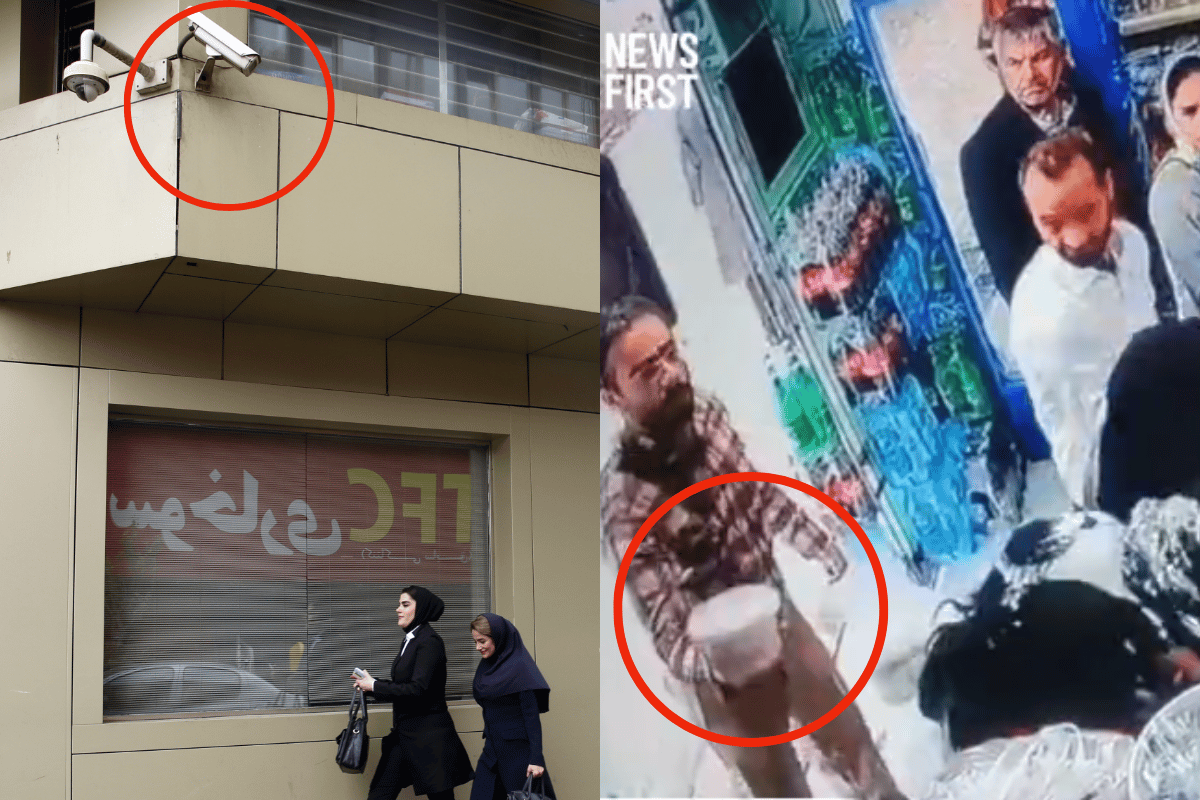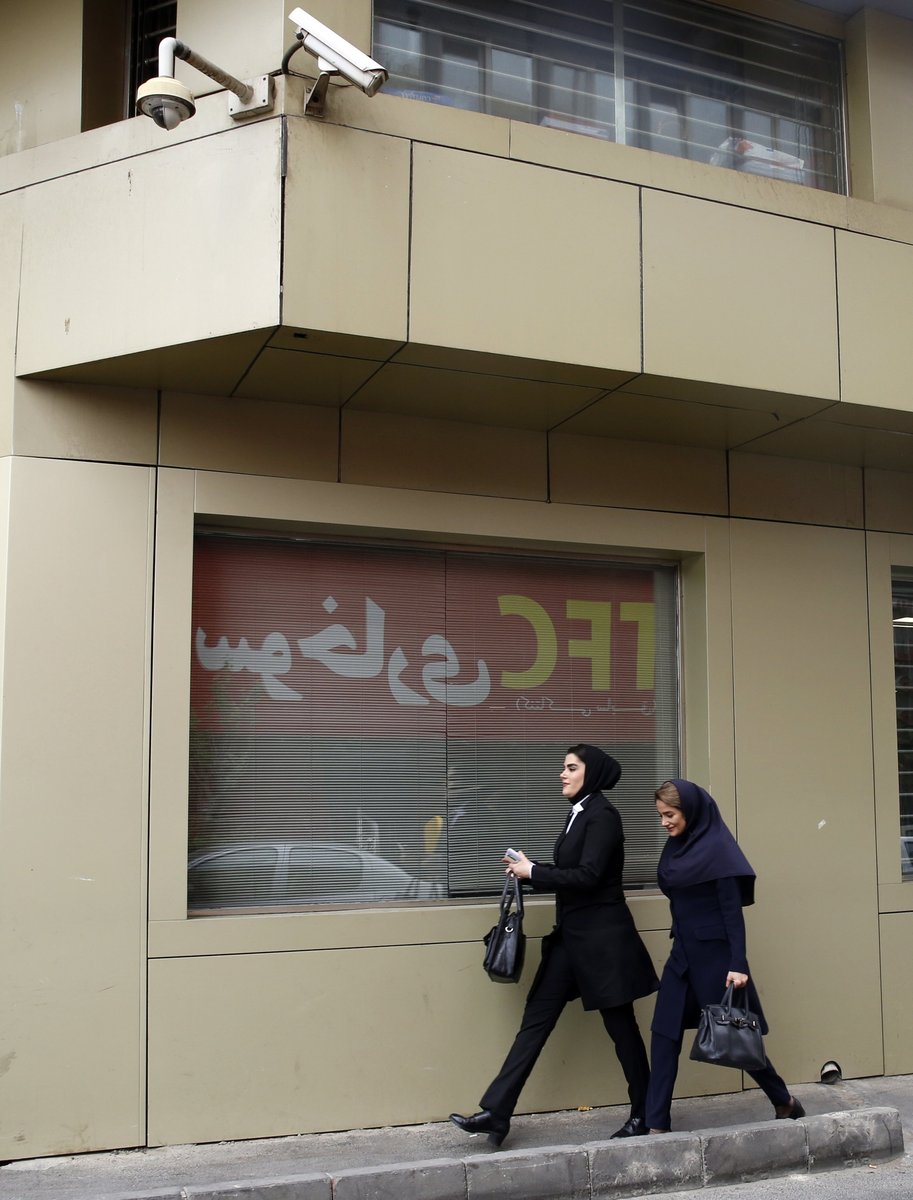
Cameras are being installed in public places in Iran to watch women as part of an intensifying campaign to crack down on dress codes.
As protests continue throughout the country and women continue to defy the mandatory dress code, Iranian police are installing cameras to identify and penalise women who don't cover their hair.
Those who are caught unveiled will receive a "warning text messages as to the consequences", police said in a statement.
The move is aimed at "preventing resistance against the hijab law", with the statement adding that such resistance tarnishes the country's spiritual image and spreads insecurity.
Police also called on owners of businesses to "seriously monitor the observance of societal norms with their diligent inspections".
 Iranian women walk next to a CCTV camera installed in a street in Tehran, Iran, 10 April 2023. Image: AAP.
Iranian women walk next to a CCTV camera installed in a street in Tehran, Iran, 10 April 2023. Image: AAP.

Top Comments